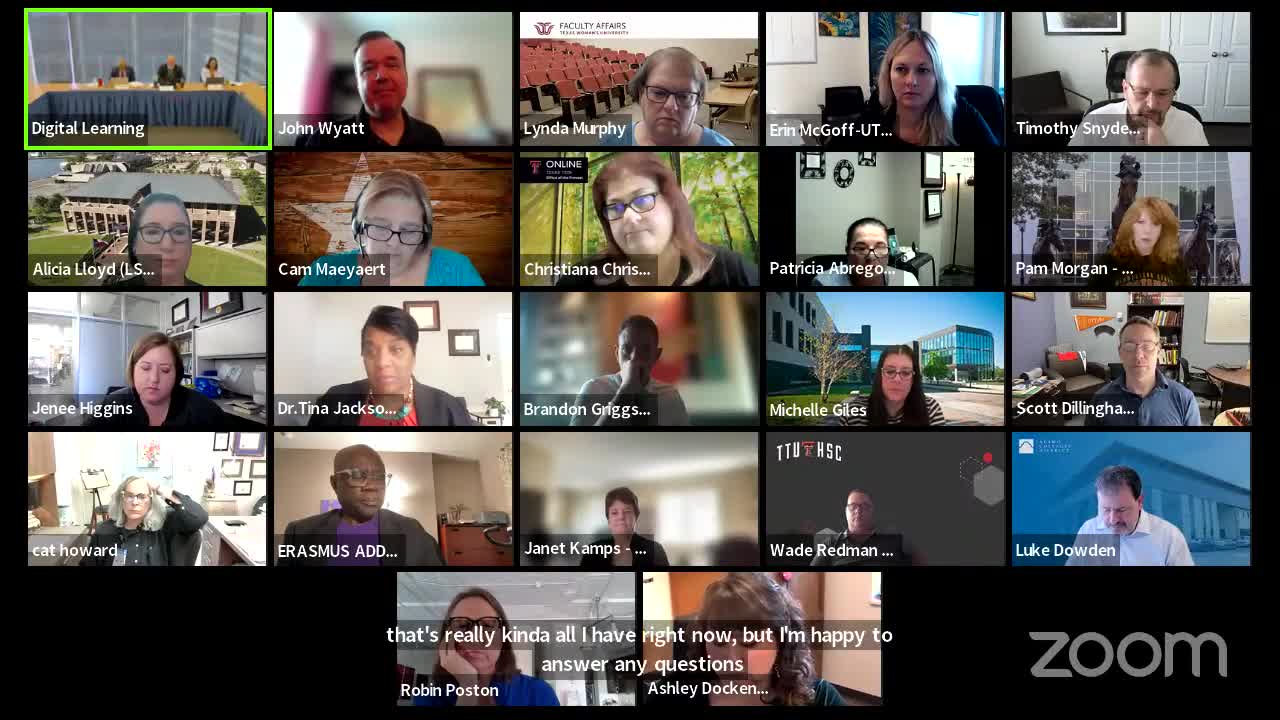Texas Workforce Education Updates Highlight Leadership Grants and Disaster Recovery Procedures
August 09, 2025 | Higher Education Coordinating Board (THECB), Departments and Agencies, Executive, Texas
Thanks to Scribe from Workplace AI , all articles about Texas are free for you to enjoy throughout 2025!

This article was created by AI using a video recording of the meeting. It summarizes the key points discussed, but for full details and context, please refer to the video of the full meeting. Link to Full Meeting
Dr. Tina Jackson, Assistant Commissioner of Workforce Education, highlighted significant initiatives aimed at enhancing workforce education across the state. She reported on a recent workshop for Perkins State leadership grant recipients, where educators shared innovative strategies to support students facing various challenges, including childcare and mental health issues. Jackson announced that 19 institutions have applied for the next round of leadership grants, focusing on critical areas such as prison education and high-demand credentials.
Additionally, the meeting addressed the ongoing efforts to improve career and technical education (CTE) programs. Jackson detailed a new planning grant awarded to seven institutions, aimed at developing programs that bridge the gap between K-12 education and community colleges. These programs include pharmacy technician training and artificial intelligence courses, reflecting a commitment to equipping students with relevant skills for the job market.
The meeting also touched on the importance of disaster recovery policies for educational institutions, with Dr. Cam May emphasizing the need for comprehensive plans that address both natural and manmade disasters. This initiative aims to ensure that institutions are prepared for any disruptions, safeguarding students' educational experiences.
As Texas continues to navigate the evolving landscape of digital education and workforce training, these discussions underscore the state's proactive approach to enhancing educational opportunities and addressing the needs of its diverse student population. The outcomes of these initiatives are expected to significantly impact the state's educational framework in the coming years.
Converted from Learning Technology Advisory Committee (LTAC) August Meeting 08/08/2025 meeting on August 09, 2025
Link to Full Meeting
Comments
View full meeting
This article is based on a recent meeting—watch the full video and explore the complete transcript for deeper insights into the discussion.
View full meeting
